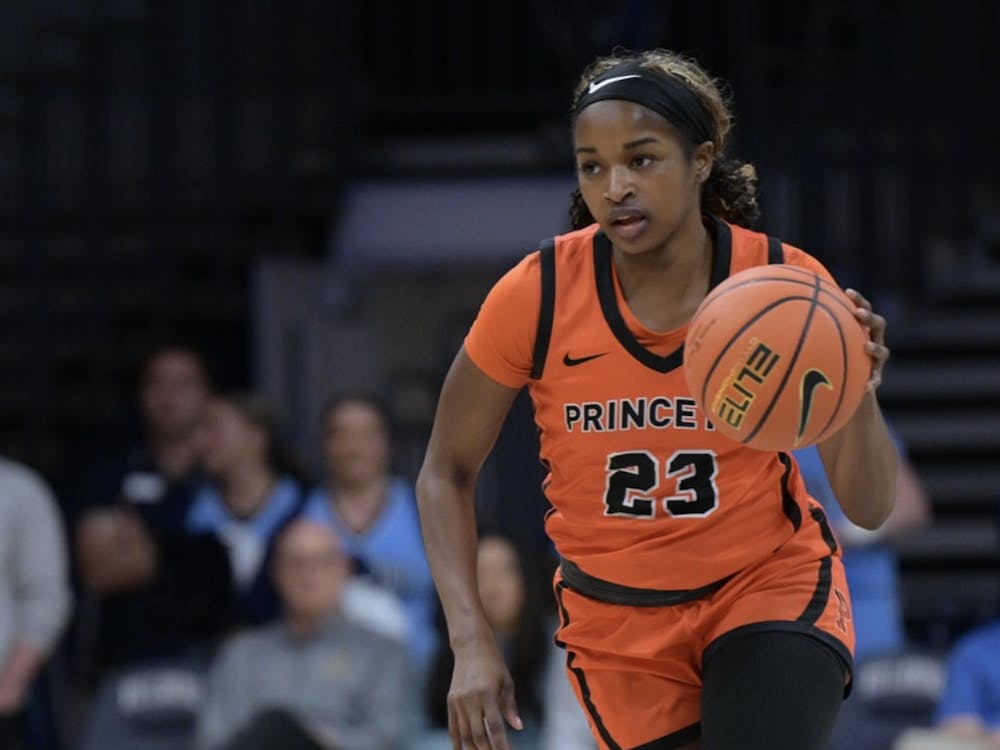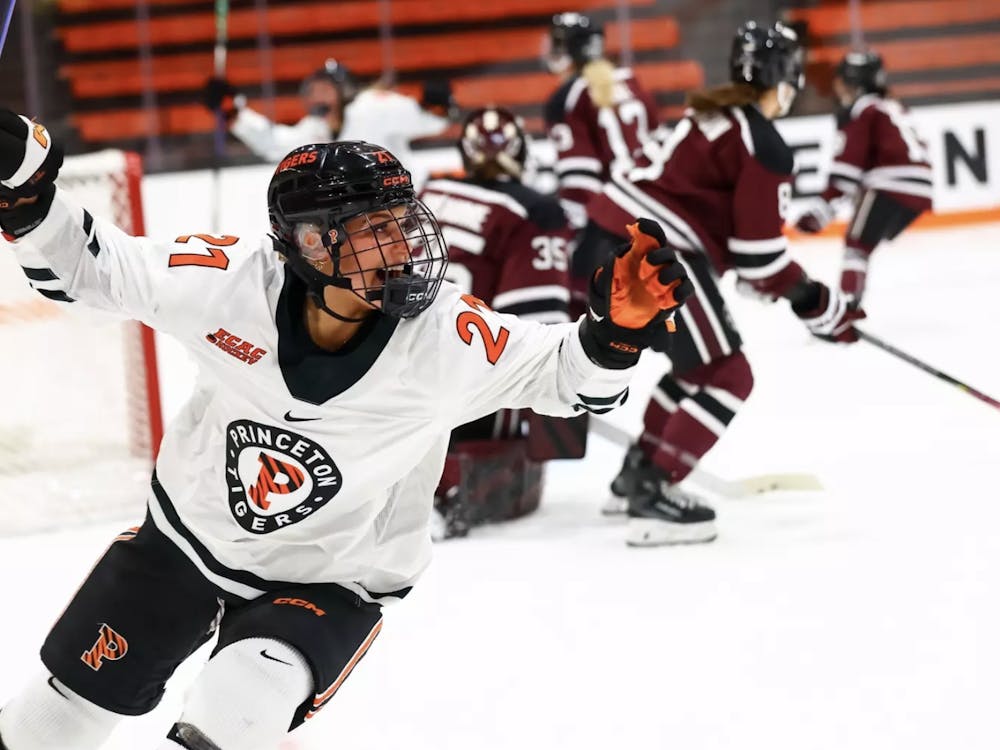The club equestrian team didn’t have particularly high hopes going into the Ivy League championships last weekend. Accustomed to finishing second-to-last, senior Andrea de Sa said, the Tigers were trying to keep their spirits up with the thought that they could place third-to-last this year. They ended up stunning the other teams and themselves, finishing in second place, just three points behind Cornell.
“I think we were extraordinarily lucky,” de Sa said.
To a certain extent, Princeton was lucky to even be at the championship tournament. For a club team that practices once a week, has only 16 members and struggles to stay afloat financially, being able to go to a show is never a guarantee. De Sa said that her team has been able to go to a show roughly every other week.
Part of the difficulty of fielding a team is financial. Because Princeton — unlike most other schools in the Ivy League — does not have its own horses or stables, the team has to pay to use the facilities and horses at Silver Dollar Stables in Cranbury, N.J., where each rider practices for about one hour a week.
“Not only are we a club team, but we are a severely underfunded club team,” de Sa said. “Our members have to shoulder a lot of the costs of being on the team.”
Those costs, which de Sa says are significantly higher than dues for most other club teams, keep the membership numbers low. The team currently consists of 16 people, but all of them cannot always make it to a show; only seven Tigers competed at the Ivy League championships. Consider that number compared to Brown, a team of 39 members, and Cornell, which has 29. Those schools have NCEA Division I teams, and they, along with most of the club teams in the Ivy League, have their own facilities and horses to use for practice.
IHSA shows give their contestants randomly selected horses. Unlike most of their competitors, the Tigers were used to this, since in practice they can only use whichever horses happen to be available at Silver Dollar.
“We were extraordinarily lucky in the horses that we drew,” de Sa said.
According to sophomore co-captain Erica Gonzalez, a team's score is the sum of the points that the chosen riders accumulate.
"At the beginning of the show day, the coach chooses one rider from each division to be the 'point rider.' Their points are the only points that count at the end of the day," Gonzalez said. "However, you are allowed to have more riders in that division."
The upshot of all this, according to Gonzalez, is that a larger team is more likely to get more points, even if many of its riders don’t finish high in their events.
"Rather, a larger team is more likely to block smaller teams from getting more points, therefore making it easier for them to win overall," Gonzalez said.

De Sa said that the team's size not only made Princeton a long shot, it made the Tigers virtually invisible until the final results were announced.
“We had a really small team, to the point where, when they were announcing the winners, everyone was like, ‘Wait, Princeton’s here? Where are they?’ ” she said.
De Sa said that the team was lucky to be able to have someone in every division, maximizing the undersized team’s chances to gain points. In the end, they had no trouble picking up points, edging out Brown by one point and coming very close to taking down a larger, better-funded, better-equipped Big Red team.
Sophomore co-captain Sara Gonzalez led the Tigers' charge, winning the Intermediate Division Over Fences Class and Flat Class. De Sa, sophomores Erica Gonzalez and Caresse Yan and junior Adriana Hugessen placed in their divisions as well.
Now, the Tigers will look to build on their second-place finish. The team had over 30 riders in 2006 and hopes to get back to those numbers by dispelling the myth that the sport requires years of training. In fact, the Tigers are actively seeking out people who have never ridden before.
“There’s sort of a stereotype that equestrian is this really elite sport that, if you haven’t been doing it in prep school since you were, like, five, you can’t do it,” de Sa said. “That’s not the case. I started riding in college.”
De Sa and her teammates are hoping that the Princeton community will come to see what their Ivy competitors were forced to realize last weekend: The Princeton equestrian team is here.







